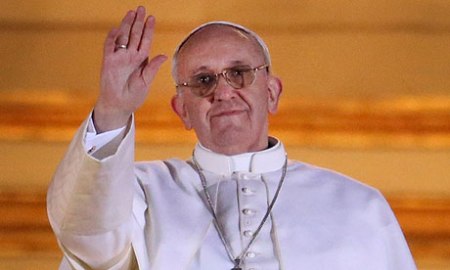
Gilad Atzmon
Dissident Voice, which posts articles by Israel Shamir and Andre Fomine, continues to lower its bar by posting an article by Gilad Atzmon. Entitled Ex-British Envoy Told the Truth (for a change), the article begins:
Peter Jenkins, Britain’s former representative on the International Atomic Energy Agency, has told the debating union at Warwick University that a “just war” is not a Jewish notion. Jenkins was obviously telling the truth but the Zionist Jewish Chronicle is not happy.
The retired Foreign Office diplomat, speaking in a debate on nuclear proliferation in Iran, said: “Israelis don’t practise an eye for an eye and a tooth for a tooth, they practise ten eyes for an eye and ten teeth for a tooth.” He also added that “the idea that a just war requires the use of force to be proportionate seems to be a Christian notion and not a Jewish notion.”
So, does Jenkins believe that the Crusades, in which many Jews and Muslims were killed, were a “proportionate use of force” in response to the peaceful Muslim occupation of the Holy Land? Or how about the invasion and conquest of Mexico, done in the name of spreading Christianity? Was it a “proportionate use of force” in response to the mere existence of the Mexican people?
Jenkins’s argument is obviously nonsense – so, of course, Atzmon fully approves of it. Responding to criticism of Jenkins, he writes:
Yet, I am slightly perplexed, why is telling the truth about Jewish culture anti-Semitic? Is not the Old Testament far more violent than any Quentin Tarantino film?
I can think of many things that are far more violent than a Quentin Tarantino film. Here are just a few: the Mahabharata, the Iliad, the Odyssey, the Mabinogion, and Grimm’s Fairy Tales. (I’m not kidding about the last. You should read them in the original German, or in a faithful translation.) The authors of the Old Testament certainly weren’t the only people who like to write about violence.
A little later, Atzmon comments:
I would obviously argue that it is our intellectual duty to call a spade a spade and to criticise Jewish politics and Jewish culture for what they are.
What exactly does Atzmon mean by “Jewish politics”? Noam Chomsky? Norman Finkelstein? Alan Dershowitz? Joseph Lieberman? Binyamin Netanyahu? Amy Goodman? Your guess is as good as mine. Atzmon doesn’t seem aware that the term “Jewish politics” embraces quite a large spectrum of personalities, ranging from Karl Marx to Ayn Rand.
In response to one critic of Jenkins, Atzmon writes:
Mr Sacerdoti is obviously a Hasbara spin master. He mentions that “this particular view, that Jews do not adhere to the concept of ‘just war’ implies that Jews are by nature bloodthirsty and unjust. I believe any such generalisation about the nature of Jews is racist.” But here is a slight problem, Mr Jenkins didn’t speak about Jews, the people, the ethnicity or the race, he was clearly referring to “Israel”, i.e., The Jewish State and to Jewish culture.
You see, Jenkins wasn’t referring to the Jews; he was actually referring to Jews. (“The Jewish State and Jewish culture” pretty much includes all Jews, does it not?)
Atzmon ends:
The truth better be said. Mr Jenkins told the truth and actually used a moderate and careful language. I wish the BBC and The Guardian were as courageous as Mr Jenkins. I also do not think Zionist organisations should be the ones who moderate the critical discourse of the Jewish State and Jewish culture.
And, clearly, Atzmon shouldn’t be moderating that discourse either.









